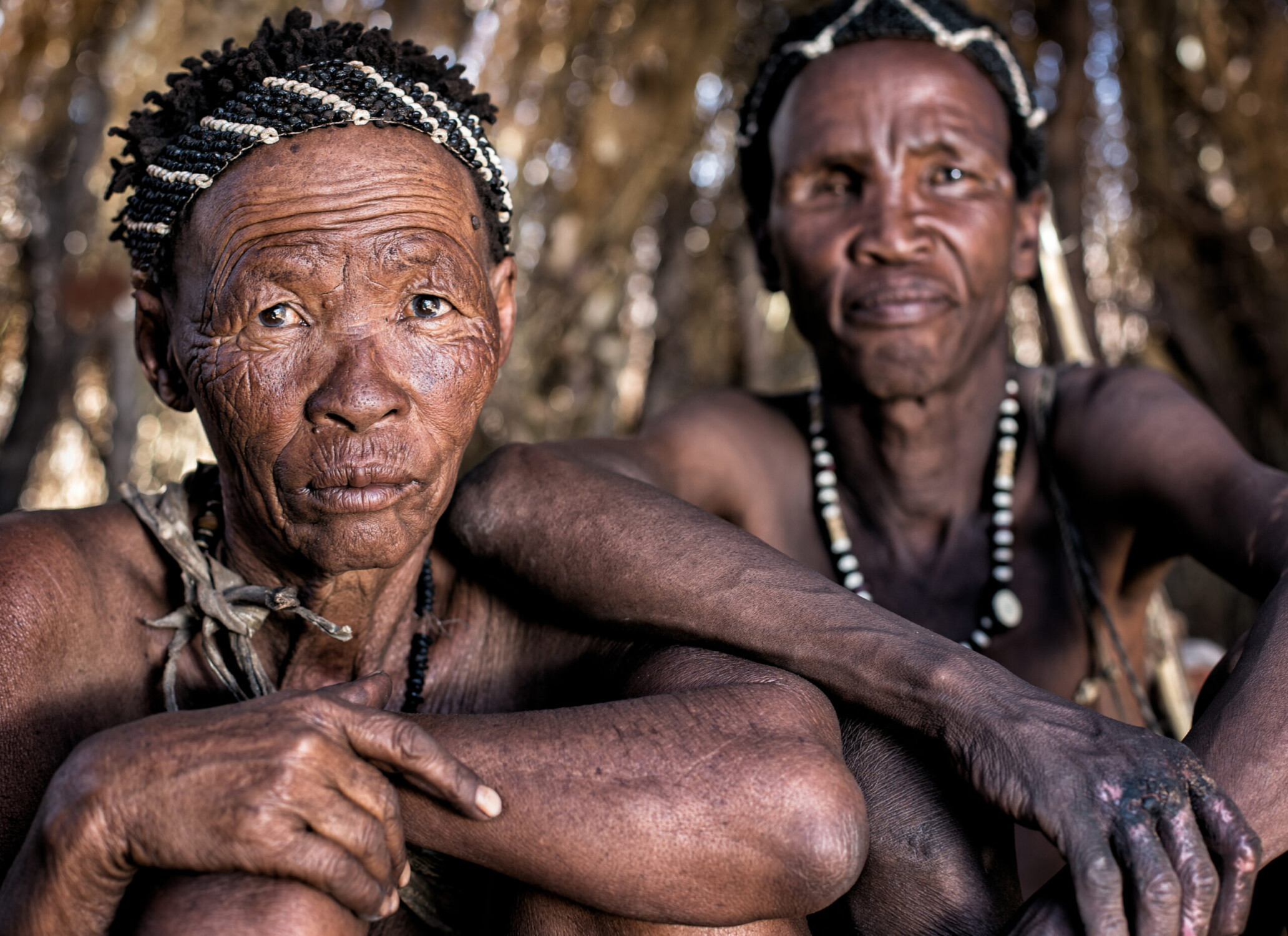The ancient San-Bushman tribesmen are the oldest inhabitants of Southern African, they have lived in the region for at least 20,000 years. The term San is usually used in referring to a diverse group of hunter-gatherers in Southern Africa who share historical and linguistic connections. Sine there are different groups of Sans and there was no collective name to call them, the term Bushman was adopted by the colonial masters in the region.
The term has since been abandoned as it has been considered derogatory, however, it has stuck with the tribespeople. The term itself was used by the Dutch and is loosely translated bandit and outlaw. This name was given to the San during their long raging battle with the colonial masters. The Sans took on the name as a badge of honour for their continued resistance against the Dutch masters.
The San people speak numerous dialects of a group of languages known for the characteristic clicks. The typical san community is usually very mobile and always on the move. At certain period of the year, different groups meet up to share news and also inter marry. As a nomadic group, the Sans do not rear or domesticate animals. Aside this, there are other culture unique to the Sans.

The tribe have no formal authority or figure, there is no chief amidst the San. The group makes decision by popular consensus and disputes are resolved after lengthy discussions where all involved share their view. The tribe is largely egalitarian and they share things like meat and tobacco. They also share other tangible things like land; as a rule, land within the San are communal and the right to land is usually determined bilaterally.
The San are not wasteful and they endeavour to use all part of the resources available to them. The san eat both plant and animal based meals, they roast or boil the meat over an open fire and utilize the bones or egg shell as the case may be. They make several artefacts from the remains of the animals. The San are excellent hunters and while they do a fair amount of animal trapping, they prefer to track down their kill and show their expertise.
An interesting culture of the San lies in the fact that an experienced San hunter can tell you the animal that left a smudge in the sand. Not just that, the San will go on to tell you how long the animal has left the smudge there and the direction the animal went. Their understanding of this phenomena is so efficient that it has been tested and confirmed in several circumstances. The San had to adapt this quality to help them find their kill and get water.
Hunting amongst the San is a group activity and the kill Is shared amongst the hunters. With increased civilization, the San are getting more settled and you can find several of the groups in our Safari tour of Namibia.